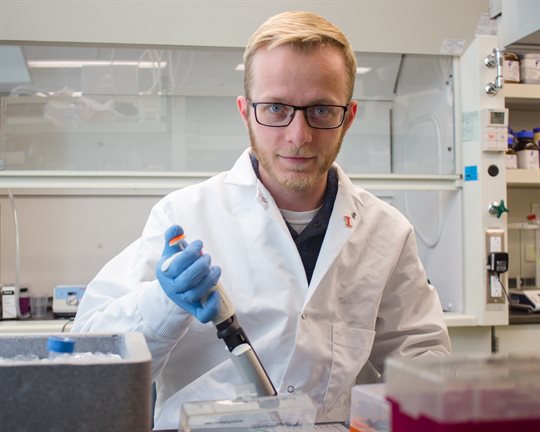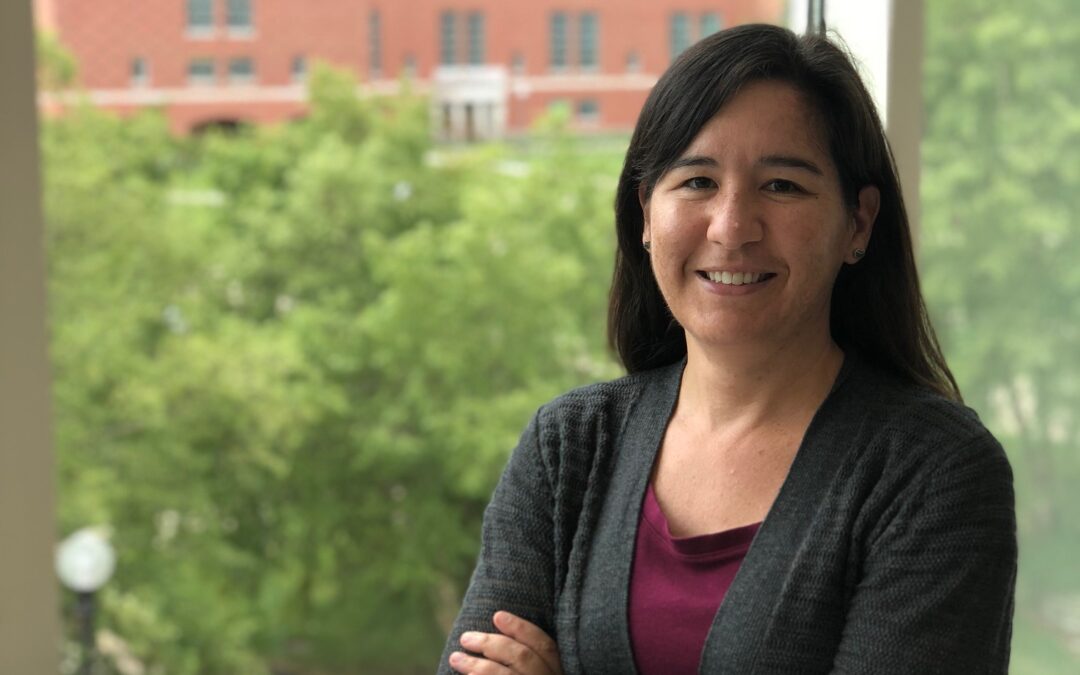Shannon Sirk
Technological advancements over the past few decades have laid the groundwork for the use of microbe-based drugs to treat diseases. Bioengineering professor Shannon Sirk and her lab are engineering human commensal microbes into living therapeutics, delivering therapeutic proteins directly in the body, to make these drugs more accessible.
Therapeutic antibodies are used for their unique ability to identify and target diseases, but current therapeutic antibodies are expensive to manufacture and administer. There is also significant interest in using truncated antibody fragments to improve the efficiency, potency, and affordability of these drugs. These smaller fragments exhibit better tissue penetration and can also be more easily and cheaply produced by synthetically engineered microbes. However, antibody fragments also carry their own set of challenges such as rapid blood clearance, which limits their clinical value. The Sirk lab is exploring ways to address these challenges by adding FcRn-binding peptides to antibody fragments. They published their findings in ACS Chemical Biology.
In the past twenty years, scientists have developed a better understanding of the natural functions of the beneficial bacteria that live inside the human body. At the same time, the development of synthetic biology has created tools to manipulate and engineer these bacterial systems and get them to produce therapeutic proteins like antibody fragments. A lot of work in industry and academia has looked at using commensal microbes that live in the gut to address diseases that affect the gastrointestinal system such as inflammatory bowel disease or colorectal cancer. Vince Kelly, a bioengineering Ph.D. candidate and the first author of this paper, is interested in using engineered gut bacteria to treat diseases elsewhere in the body.
The research team specifically studied trastuzumab, which is a well-characterized and widely used therapeutic antibody to treat HER2-positive breast cancer. HER2 is a growth factor protein on the surface of cells. When HER2 proteins bind to each other, the process triggers cellular division; when HER2 is overexpressed, it can lead to out-of-control replication or cancer. Trastuzumab targets and binds to HER2 which limits tumor growth.
“Trastuzumab is quite expensive to produce and must be delivered in large quantities intravenously in a hospital setting,” said Kelly. “This is our motivation for having a bacterial delivery system inside the patient.”

Vince Kelly, bioengineering PhD candidate
A full-length antibody is too complex to be produced in a bacteria so the team has engineered the microbes to express a smaller antibody fragment that recognizes the HER2 cancer antigen. This fragment is about a sixth of the size of trastuzumab. “The part of the antibody that we’ve removed has important functions, one of those functions is the ability to be transported from the gut into the blood by binding to a cell-surface protein called FcRn,” Kelly said. Another function is to keep the antibody circulating in the blood for a longer period of time.
The team’s goal is to re-enable these critical functions in the truncated antibody fragment by adding short FcRn-binding peptides. These peptides mimic the Fc domain without the added bulk, thus maintaining the benefits afforded by the fragment’s small size while regaining the functionality lost when the Fc domain was removed. The team used computational modeling to investigate the impact of grafting the peptides to the trastuzumab fragment before carrying out the experiment in vitro.
“This work was about the engineering of the antibody itself. The next step is to engineer the bacteria to drive the expression of the therapeutic proteins in a living system,” said Kelly. Lactobacillus casei, Corynebacterium glutamicum, and Bacteroides thetaiotaomicron are some possible microbial candidates. He added that future goals include expanding their functional peptide platform to recapture other lost Fc-mediated activity, including the recruitment of tumor-killing immune cells to enhance the therapeutic impact of these antibody fragments.
Sirk is an affiliate of the Cancer Center at Illinois, Carle Illinois College of Medicine and the Carl R. Woese Institute for Genomic Biology. She is also a recent recipient of the Foundation for Women’s Wellness (FWW) Women’s Health Research Award and the Associate Director of the Illinois Microbial Systems Initiative.
– Written by Huan Song, Bioengineering

